There have been a few big names out with new records in this first quarter of the year, of particular note the Finnish melodeath titans Insomnium and Norway’s Enslaved, who if you’ve been following for any length of time will likely be aware of their far too proggy black metal approach over the course of the past decade plus. Despite my blah-dom over Enslaved’s recent albums (more or less anyway, there’s usually a track or two that has been worth hailing at least), I’m still interested in what they’re putting out if only because of the memory that still lingers of what they’ve delivered long in the past (I mean Axioma was thirteen years ago at this point, Ruun even longer!). The two bands are also embarking on a US trek that sees them getting as close to me as Austin, and I briefly considered going, but the list of other shows and events I’m attending in April is a bit too much to squeeze in another out of town trip (already heading up to Austin earlier in that week for another event). I will commend the bands on putting together a seriously value laden tour, two headliner worthy bands going the co-headline route is smart and something more bands really need to get together and do now that ticket service fees just seem to be skyrocketing higher and higher (gotta give The Cure’s Robert Smith props for shining a spotlight on this topic with his recent skirmish with Ticketmaster). Co-headlining packages makes a tour more feasible for the bands involved, helps fans save money and not have to pick and choose gigs, and just seems to be a win/win all around.

Insomnium’s newest, Anno 1696, is a lot like Winter’s Gate (2016) in that it’s based on a short story by bassist/vocalist Niilo Sevänen, this one loosely based on or inspired by the Torsåker witch trials (which by the way… brutal stuff), and in my opinion featuring a sound that also borrows a bit from the band’s more extreme blackened leanings on that album. It does not go full bore black metal however, keeping things reigned in a bit more in the traditional Insomnium mode, but this is decidedly a darker and more aggressive album than Heart Like A Grave (2019), which was an album I absolutely adored (it made that year’s top ten albums list). Like that album, this was largely a Marcus Vanhala written affair, with Sevänen handling lyrics, but founding guitarist Ville Friman popped back up on two songs and Jani Liimatainen contributed to a pair as well. I’ll admit that I miss the days when Friman was the creative musical force behind the band, his last real album wide input coming on Winter’s Gate and particularly Shadows of a Dying Sun before that. He’s scaled back his involvement largely due to his day job and that’s understandable, and to Vanhala’s credit as Heart Like A Grave has shown, he has been more than capable of fitting right into the Insomnium style and writing to suit this band’s creative approach rather than bringing over ideas from Omnium Gatherum. And I’ll be honest, Shadows was a bit of a letdown overall, but the best parts of that album had Friman’s very distinct tell-tale DNA, that unmistakable way of expressing melancholia that characterized so much of classics such as One For Sorrow and Across the Dark.
Friman’s songwriting is heard here on the album highlight “Lilian” and on the companion EP (included in the deluxe edition of the album) cut “Stained In Red”. Where the latter is set to a surprisingly fiery and aggressive uptempo rhythmic assault and splashes of melody thrown around like wild paintbrush strokes, the former is a tried and true Friman classic, all cascades of aching melodies draping over a storming progressive riff sequence. I really have trouble putting together in words just why Friman’s writing style is so affecting, but to me it’s what makes Insomnium’s sound so special, similarly to what Jesper Stromblad did for all those classic first five In Flames albums. But my two other favorite cuts from the album are a Vanhala tune in “Godforsaken” and a Sevänen/Liimatainen collaboration in “Starless Paths”. The former features accent vocals by Johanna Kurkela (aka Mrs. Tuomas Holopainen) and contains my favorite elegiac lead guitar melodies and a gripping, emotionally wrought outro vocal melody sequence. And “Starless Paths” really has to be one of the band’s best ever epics, the longest song on the album here at nearly eight minutes, it is built with several distinctive movements and never feels like it’s dragging or repeating itself, a genuine surprise (also the most Winter’s Gate adjacent moment on the record).
There’s enough dynamic variety on the album as a whole to keep things engaging throughout, songs such as “The Witch Hunter” and “The Unrest” having really earthen, rustic acoustic passages that are really effective at tempering all the aggression they’re sandwiched between. My only real meh reaction on the album unfortunately came on the collaboration with Rotting Christ’s Sakis Tolis in “White Christ”, which wasn’t a terrible tune, but felt a little plodding with nothing to offer in the way of mighty hooks or melodies (Tolis felt a little under utilized as well, I’m not exactly sure what he was supposed to bring to the song considering how lively he sounds in his main band and how muted he came across here). But over all, Anno 1696 is a solid, at times very good Insomnium album, though not living up to the dare I say masterpiece territory that Heart Like a Grave was knocking at the door of. They should try to get the three extra songs from the limited edition on the streaming services, because I do feel that despite increasing the overall tracklisting from a tidy eight to eleven, they do add quite a bit to the overall experience and don’t feel like mere b-sides left on the cutting room floor.

I have a bit less to say about the new Enslaved album Heimdal, and not because I dislike it entirely, though I still have an overall less than enthusiastic take on it as a whole. To get into what I liked about it straight away, it sounds like they have brought a slightly deeper guitar tone to the album than the relatively cleaner one they were using on Utgard, and that’s a good thing. It actually works well with the Sabbath-ian riffs they have going on in the opener “Behind the Mirror” and the strangely arranged “Forest Dweller”. I quite liked the latter, surprising even myself because it does contain one of those morose, flat sounding clean vocal passages that Enslaved has become so fond of that normally try my patience. I wonder if all the acoustic guitar here and there and strange, otherworldly arrangements make the song feel a lot more akin to folk metal that’s making it stand out to me as an album highlight. The best riff on the album belongs to “Kingdom”, that repeating intro figure is damn excellent and despite some detours into bumpy territory, the song largely remains engaging throughout. I enjoyed the urgent aggression on “Congelia” and the strange Nintendo sounding keyboard accompaniment that bounced alongside the riff midway through (I do think they could’ve tightened this song by a minute or two and made it better). And well, frankly the last three songs on the album I tend to zone out on each pass through so I guess that’s an accurate indicator of my interest level for those. I dunno Enslaved, you do you I guess, and I’ll keep hoping you’ll ditch the progressive meanderings and just get back to something that feels vital, urgent, and headbanging worthy.
Apart from spending time with the big names (ICYMI, I did a deep dive on the new In Flames album last update), there’s been a mix of new releases worth talking about however briefly. On the symphonic metal front, I actually thought the new Xandria album The Wonders Still Awaiting, the band’s first with new vocalist Ambre Vourvahis is fairly strong. It’s eerie just how similar their situation is to Nightwish’s during the Tarja to Anette transition, because former vocalist Dianne van Giersbergen was similarly of the classically inclined vocalist mode that has so defined Tarja, and Nightwish made the switch to a more mainstream adjacent vocalist in Anette Olzon. To her credit Vourvahis does possess some quasi-classical vocalist ability, though seemingly out of van Giersbergen’s league, but she makes up for it with a voice that’s adaptable to either pop or rock, even handling the extreme metal screams on the record. This has naturally lent a bit of a shift to songwriter/guitarist/keyboardist Marco Heubaum’s approach to new material, writing stuff that’s far less classically influenced. It’s how Nightwish pushed the classical stuff to be window dressing on Dark Passion Play and to a lesser extent, Imaginareum during the Anette era. Don’t get me wrong, I loved what van Giersbergen brought to this band, and her second album with the band, Sacrificium was a minor symphonic metal masterpiece, genuinely inspired and the kind of thing that breathed a little new life into an old formula. But it’s a wise move here, if you can’t outdo that album nor get a better or on par vocalist in the mold of van Giersbergen, don’t even try, just pivot into different direction. I think there will be a faction of their fans who aren’t enthusiastic about where they’re heading with Vourvahis, but just as many who will be along for the ride. I’m not saying this is the band’s best effort by any means, but the band avoided disaster here (who am I kidding, the band is all new members anyway, I’m talking about Marco specifically).

I found myself surprisingly just as enthusiastic about the new Delain album, largely I suspect because I’m not sure what I was expecting here really. Their new vocalist Diana Leah sounds rather good, she’s a talented singer and has a natural warmth in her tone that I quite enjoy. The guest vocalists Paolo Ribaldini and Marco Hietala (yep that one) do inspired appearances as well, and the songwriting is as tight and compact as the Martijn Westerholt has been known to deliver. I’m not an expert on this band, despite having seen them live at least six or eight times by now (have lost count it’s been so many), but one of my sneaking suspicions was that Charlotte Wessels might have been responsible for a lot of the lyrical cringe that prevented me from really engaging with their work in the past (“We Are the Others” springs to mind… good god). Now I’m not saying Wessels time in the band wasn’t without it’s merits, 2014’s The Human Contradiction was a solid record. But the new album, Dark Waters, might just be the best thing I’ve heard under the Delain banner, leaning into it’s fairly straightforward symphonic metal meets pop approach without apology. The aforementioned guest vocalists make a duo appearance on “Invictus” and damn if it’s not a really good song, just pompous grandeur with enough metallic teeth marks to convince someone they got bit. Put it this way, if I somehow see Delain on a package tour again for the umpteenth time, I’ll pay attention this go around instead of hanging in the back for most of their set.
Alright so a more rapid fire rundown of recent new stuff:
Riverside – ID.Entity: I think I’ve flirted in the past with the idea of Riverside being the natural successors to Porcupine Tree in the heavier prog-rock side of the prog spectrum, but they’ve really claimed that title with this new album. It’s simultaneously sad and exciting to say that I enjoyed this record way more than the recent Porcupine Tree reunion album. There’s just something very direct and punchy about these songs, despite all their very progressive time changes and veering off into different directions. It’s like Riverside are capable of doing all those very prog things while still keeping the reins on a song’s fundamental groove, riff, or melodic throughline. Go check out “Friend or Foe?” and tell me that’s not a damn hooky riff.
Lovebites – Judgement Day / Galneryus – Between Dread and Valor / Ethereal Sin – Time of Requiem Part. 2: Unleashed in the East! Erm…in other words, a handful of new albums by some storied Japanese bands in the power metal/symphonic power vein. I’m assuming everyone knows about Galneryus already, and the new album is a solid slice of what they do best. I really enjoyed the hell out of it even though I do acknowledge some of the production issues here that have the r/PowerMetal gang bent out of shape a tad. The new Lovebites is incredibly exciting, and songwriting wise it flows way better than their last two records (which I felt were great, but had a lot of jarringly awkward transitions). There was some fear that with founding member/bassist Miho leaving the group a few years back, they’d lose some of that NWOBHM/Iron Maiden influence that has so characterized their sound, but I don’t hear that here. If anything, I just hear a band that’s refined their sound to flow better, without sacrificing the jagged edges that give their attack the bite it’s always had. I’ll admit however that I was far more intrigued by the new album by longtime symphonic power/melodeath outfit Ethereal Sin, a band that’s new to me (thanks Christian!). This sounds like a mashup of Lovebites and Serenity In Murder, and I’m here for it — genuinely one of the more viscerally exciting albums I’ve heard this year. Search for it on Spotify by artist name because the album and song titles are listed in Japanese, but do give it a shot, I keep coming back to it.
Marauder – Metal Constructions VII: So this weirdly titled slab of old school metal was a happy surprise, a really well executed no frills, ample aggression filled collection of stuff that reminds me of equal parts Metal Church, Accept, and Armored Saint. A song like “Strike Back Again” hits that perfect sweet spot of furious, headbanging rage and impeccable melodic vocal melodies with well crafted supporting guitar melodies. I said this title was weird, and yeah there aren’t Metal Constructions I-VI that predate this album (shrug), but Marauder is a band that’s been around for awhile now… long enough to be called veterans anyway.
Frozen Crown – Call of the North: This is a rebound from 2021’s Winterbane, which was a worrying moment for this young band, but thankfully guitarist/songwriter Federico Mondelli sharpened his knives here. It’s a solid power metal album that accents the melodic two lead vocalist approach that Frozen Crown aims for, with Giada Etro sounding solid but my hat tip going to Mondelli’s lead vocals scattered throughout, with his moments on “Black Heart” really showing just how good he can be as a singer. I had fun listening to this overall, even though it didn’t blow me away like Crowned In Frost did in 2019.
That’s it for this update, there’s more albums I’ve listened to in the past few weeks/months that I just haven’t gotten enough time with or had “sink in” yet that will likely be covered in the next cluster-y update like this. Also the new Kamelot has only been out a week so I’m still ruminating on that one for a possible deep dive and the new Keep of Kalessin is raising my eyebrows as well so look forward to something on that.

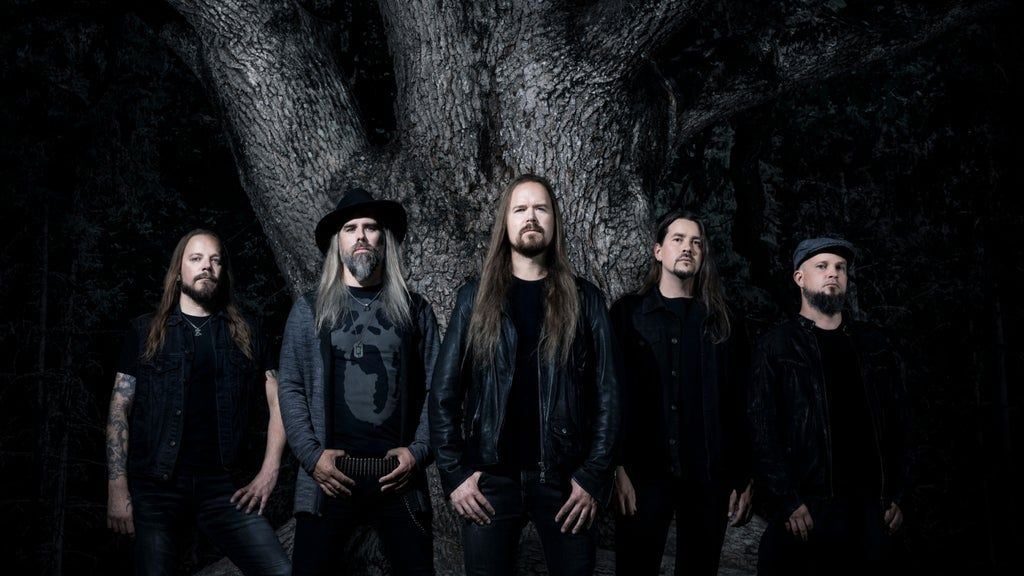
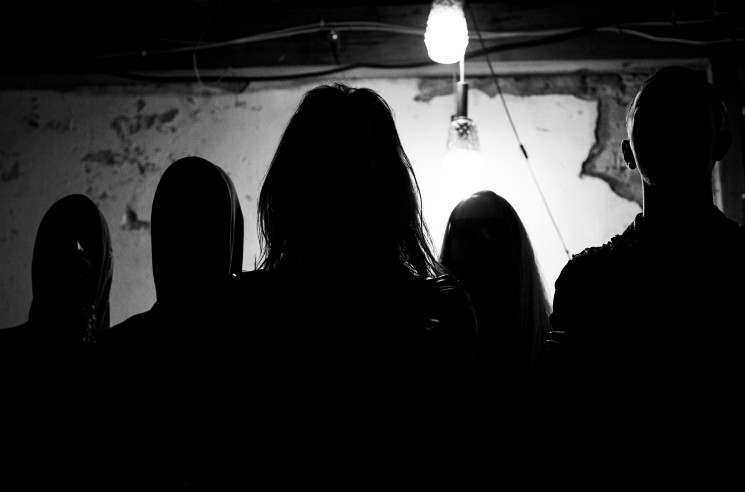









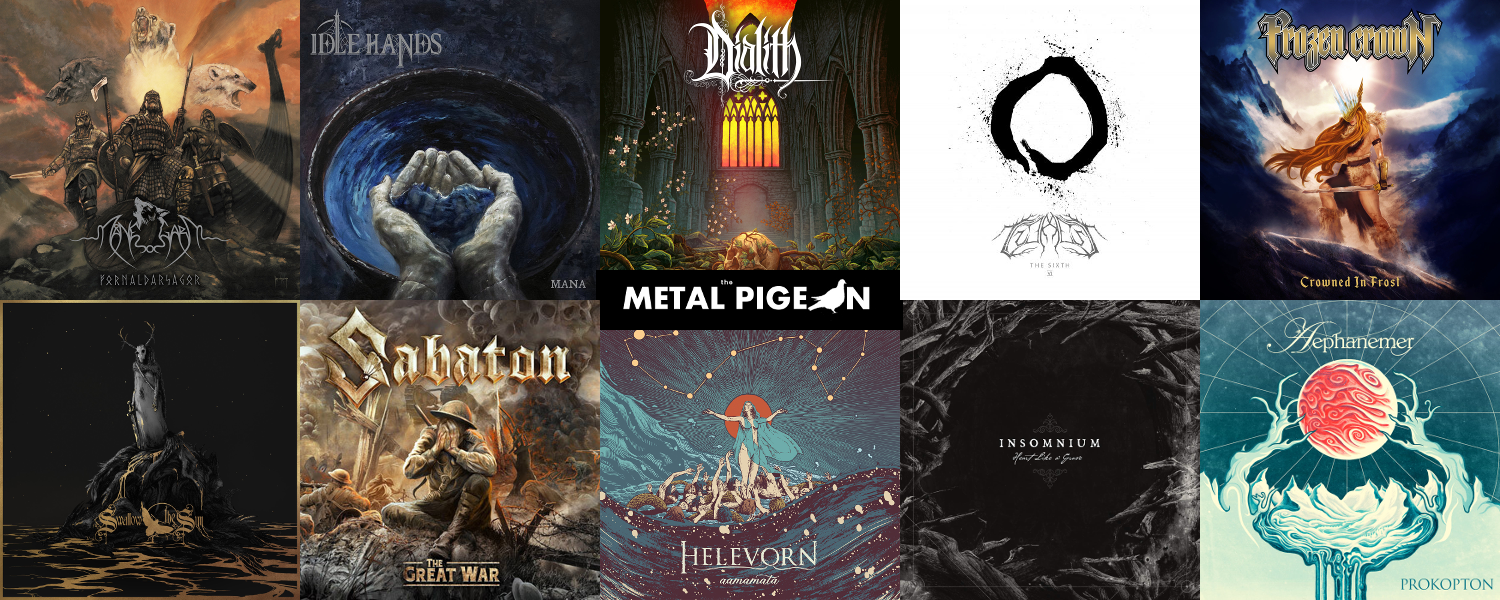













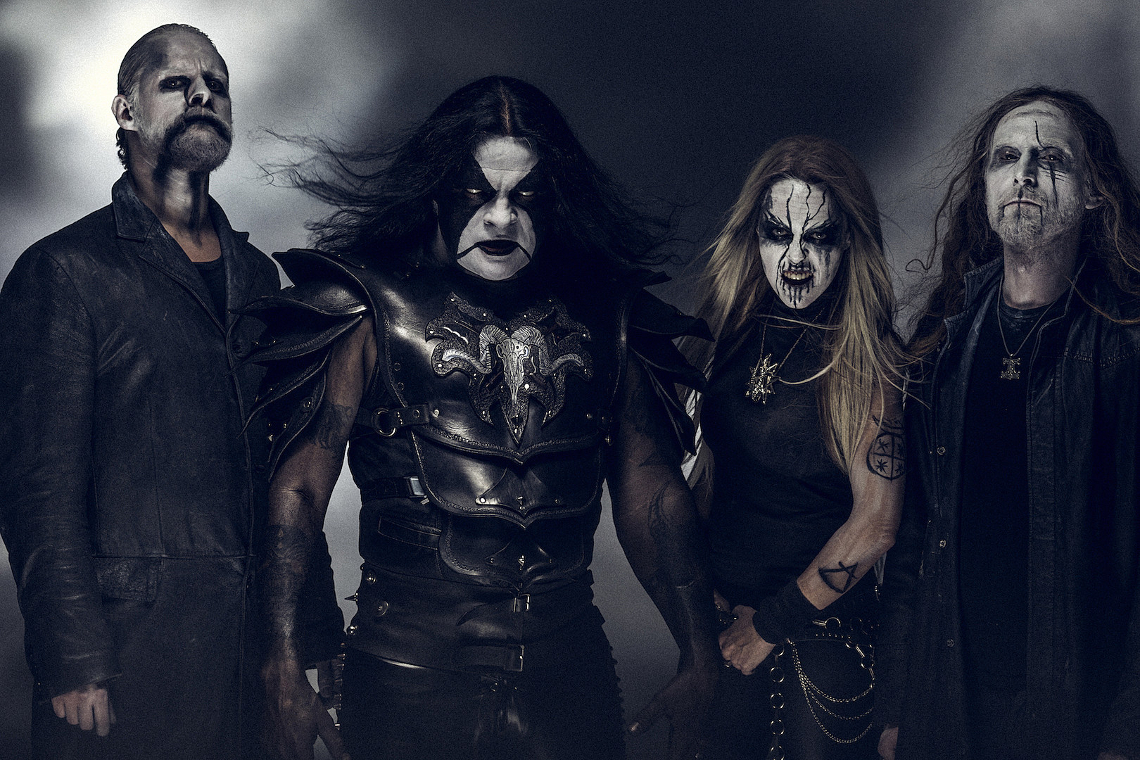



 So I spent most of the past month mistakenly thinking that this summer was a little light on quality new music, and to a certain extent that’s right in terms of May and June. Fortunately for me I’ve taken advantage of the lull to do some digging on stuff I might have missed in the past six months in general. I discovered these through a variety of different sources, but mostly from my friends at /r/powermetal and its corresponding Dischord chat as well as the USPM Connection Facebook group, all of whom helped me out with a ton of suggestions for albums I’ve missed (for better and worse). I’ve picked out a handful of the most interesting ones, so I guess these are somewhat reviews but kinda also just straight up recommendations that I think are worth your time. I’ve also reviewed the new Khemmis and Kobra and the Lotus, two bands that I had previously heard of but have never written about or investigated too much until now. The nature of how I came to hear most of these bands is a microcosm of the very essence of this blog’s founding mission, namely being a conduit for word of mouth recommendations, from others to me, and hopefully myself to you.
So I spent most of the past month mistakenly thinking that this summer was a little light on quality new music, and to a certain extent that’s right in terms of May and June. Fortunately for me I’ve taken advantage of the lull to do some digging on stuff I might have missed in the past six months in general. I discovered these through a variety of different sources, but mostly from my friends at /r/powermetal and its corresponding Dischord chat as well as the USPM Connection Facebook group, all of whom helped me out with a ton of suggestions for albums I’ve missed (for better and worse). I’ve picked out a handful of the most interesting ones, so I guess these are somewhat reviews but kinda also just straight up recommendations that I think are worth your time. I’ve also reviewed the new Khemmis and Kobra and the Lotus, two bands that I had previously heard of but have never written about or investigated too much until now. The nature of how I came to hear most of these bands is a microcosm of the very essence of this blog’s founding mission, namely being a conduit for word of mouth recommendations, from others to me, and hopefully myself to you.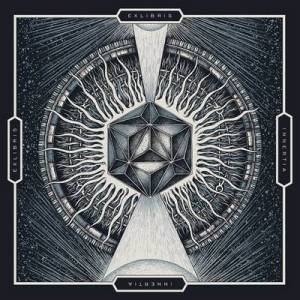 Exlibris – Innertia:
Exlibris – Innertia: Kobra and the Lotus – Prevail II:
Kobra and the Lotus – Prevail II: Thaurorod – Coast of Gold:
Thaurorod – Coast of Gold: The Night Flight Orchestra – Sometimes The World Ain’t Enough:
The Night Flight Orchestra – Sometimes The World Ain’t Enough: Uada – Cult of a Dying Sun:
Uada – Cult of a Dying Sun: Khemmis – Desolation:
Khemmis – Desolation: Frozen Crown – The Fallen King:
Frozen Crown – The Fallen King: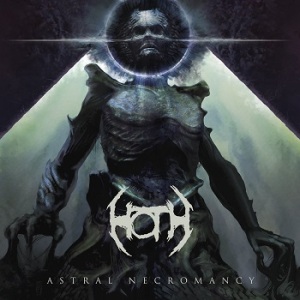 Hoth – Astral Necromancy:
Hoth – Astral Necromancy: